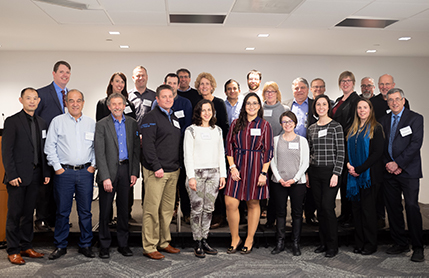Workshop on Sublethal Endpoints in Non-Target Organism (NTO) Testing for Non-Bt GE Crops
-

March 4, 2019-March 5, 2019
8:00 am - 5:30 pmWashington, D.C., USA
Most regulatory systems have developed standard test methods and data requirements for addressing the potential effects on non-target organisms (NTO) resulting from their exposure to genetically engineered plants expressing Bt proteins (insecticidal proteins primarily derived from Bacillus thuringiensis). However, recent developments in multiple technologies have led to the production of GE plants that incorporate pest protection without pesticidal proteins (e.g., using RNAi) or use of proteins that are not functionally related to Bt proteins. Although the overall assessment paradigm for GE plants is robust and can still be used to produce NTO assessments, there are ongoing discussions about the appropriate NTO tests and measurement endpoints for these new technologies. When is it appropriate to conduct sublethal endpoint assessment testing? What types of assays should be employed?
To answer such questions, the Agriculture & Food Systems Institute convened scientists from academia, government, and industry to participate in a workshop on sublethal endpoints in NTO testing for non-Bt GE crops on March 5-6, 2019 in Washington, D.C. The criteria for making decisions regarding sublethal endpoint assessment testing that were developed during the workshop will be valuable in guiding future risk assessments of GE plants where sublethal effects on NTOs might be anticipated.
The workshop resulted in the publication of “Sublethal Endpoints in Non-Target Organism Testing for Insect-Active GE Crops” in Frontiers in Bioengineering and Biotechnology on June 9, 2020.
Agenda
Day 1 - March 5, 2019
8:00 am
Opening Remarks
John Teem
Agriculture & Food Systems Institute
Session 1: Non-Bt Pest Control Technologies
8:15 am
Context and History for Biotechnology Risk Assessment, and Problem Formulation
The use of problem formulation in environmental risk assessment of GE plants, identification of protection goals, and formulating pathways to harm.
John Teem & Andrew Roberts
Agriculture & Food Systems Institute
8:45 am
The Risk Assessment Process for GE Plants and NTO Endpoint Assessment Testing for Bt Proteins
Background on NTO risk assessment as it has been applied to conventional Bt-based GE plants, including sublethal endpoint assessment testing.
Joerg Romeis
Agroscope
9:30 am
Non-Bt GE Crops
An overview of RNAi-based crops/targets. How is NTO testing different as compared to Bt crops? To what extent has sublethal endpoint assessment testing been done?
Thais Rodrigues
Greenlight Biosciences, Inc.
10:15 am
Tea Break
10:45 am
The Historical Context for Sublethal Endpoint Assessment Testing Relevant to Chemical Pesticides
What lessons have been learned through sublethal endpoint assessment testing for pesticides, and how can they be applied to sublethal endpoint assessment testing of non Bt-GE plants?
Steve Bradbury
Iowa State University
11:30 am
Discussion
12:30 pm
Lunch Break
Session 2: Introduction to Case Studies Involving Non-Lethal Endpoints
2:00 pm
Case Study: Problem Formulation and the Role of Sub-Lethal Endpoints for Assessing Non-Target Effects of RNAi Targeting Western Corn Rootworm
Steve Levine
Bayer Crop Science
2:45 pm
Tea Break
3:15 pm
Review of Case Studies for Consideration in Breakout Groups (Day 2)
Introduction to the hypothetical case studies. These will include hypothetical examples of RNAi and/or non-Bt insect active proteins that are not immediately toxic.
Case studies will address:
1. What criteria determine when sublethal NTO testing is necessary?
2. If sublethal NTO testing is done, what tests should be done?
Andrew Roberts
Agriculture & Food Systems Institute
3:45 pm
Discussion
4:45 pm
Closing Remarks Day 1
John Teem
Agriculture & Food Systems Institute
5:00 pm
Adjourn Day 1
Day 2 - March 6, 2019
8:00 am
Welcome and Review of Day 1
John Teem
Agriculture & Food Systems Institute
Session 3: Breakout Discussions
8:15 am
Review of the Case Study Instructions and Organization of the Breakout Groups
Andrew Roberts
Agriculture & Food Systems Institute
8:30 am
Breakout Groups
10:30 am
Tea Break
11:00 am
Breakout Groups (continued)
12:00 pm
Lunch Break
Session 4: Group Reporting and Consensus Development
1:00 pm
Breakout Presentations and Discussion
Each group will have 30 minutes to present and to field questions.
3:30 pm
Tea Break
4:00 pm
Recap of Group Discussion
John Teem
Agriculture & Food Systems Institute
4:45 pm
Final Discussion
5:30 pm
Adjourn Day 2
